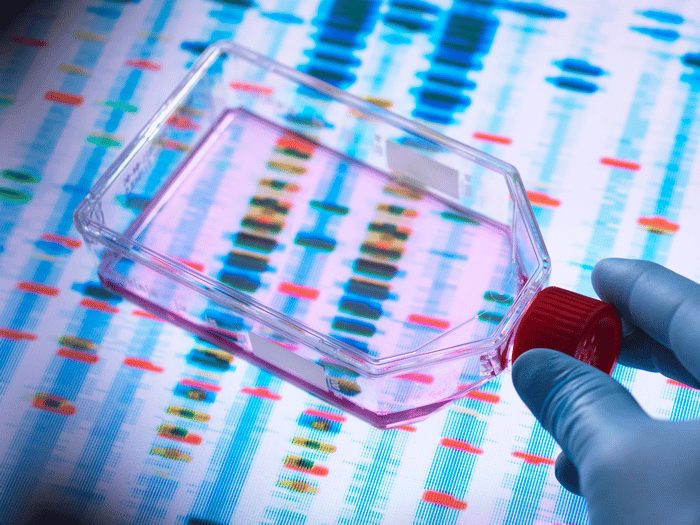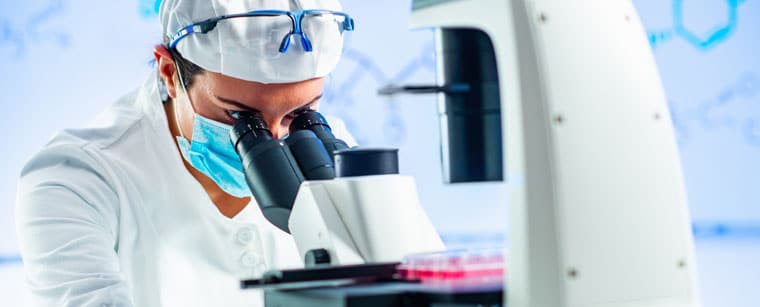Stem research and therapy holds immense promise in the medical field, offering potential treatments for a wide range of conditions. However, the legal landscape surrounding these cutting-edge treatments can be complex and varies significantly across countries and even regions. Understanding the legal considerations can help you to make an informed choice about your healthcare.
This blog will explore whether stem cell research is legal, how the permissions for different stem cells vary, and how legislation for stem cell therapy and research varies between places.

Understanding stem cells and their therapeutic potential

Stem cells are the foundation of specialized cells within the human body. They have the unique ability to develop into a different cell type in a process called differentiation. This capability makes them invaluable for regenerative medicine. As stem cells are injected into targeted regions which are damaged, they can develop into the cells needed to repair or replace damaged tissues.
There are several types of stem cells, including:
- Embryonic stem cells (ESCs): derived from early-stage embryos, these cells can differentiate into any cell types in the body. They are seen as the most powerful type of stem cell but raise major ethical concerns as harvesting these stem cells involves destroying a human embryo.
- Adult stem cells: found in various tissues such as bone marrow and fat, these cells, also known as mesenchymal stem cells, are more limited in their differentiation potential. However, they are still able to differentiate into a variety of specialized cells such as cartilage, muscle, and bone cells. They are also much less controversial to harvest.
- Induced pluripotent stem cells: created by reprogramming adult cells to an embryonic-like state, these cells offer the versatility of ESCs without the ethical concerns.
- Hematopoietic stem cells: located in the bone marrow, these stem cells produce all blood components: red blood cells, white blood cells, and platelets. They are crucial for treating blood diseases such as leukemia and aplastic anemia, as well as immune system disorders.
Stem cells have long been recognized and approved as integral in the treatment of blood cancers and disorders. Advances in research have also recognized stem cell therapy as a potential treatment for a range of conditions such as joint injuries, chronic pain, and neurodegenerative disorders.
International legal landscape of stem cell therapy and research

So, is stem cell research (and therapy) legal? And where is stem cell therapy legal?
Although stem cell has great potential in treating a variety of diseases, concerns arise surrounding:
- the ethical use of embryonic stem cells
- the lack of clinical trials and research
- the limited and unstandardized regulations.
Because of this, using stem cell-based therapies for purposes other than blood disorders is still seen as experimental. This means it’s still being evaluated for efficacy and safety before it can be legally marketed as a treatment for certain disorders.
The legal status of stem cell research and therapy varies widely around the world, often influenced by ethical considerations, cultural attitudes, and scientific advancements.
Here are some key points from different regions:
United States
Research with stem cells is legal in the U.S., but the framework for research is complex and governed by both federal and state regulations. Federal funding for research involving embryonic stem cells is restricted, but state-funded research is permitted. In these instances, each state has set up research guidelines. Adult (or “mesenchymal”) stem cell research is legal in the U.S. and is subject to less restrictions than embryonic cell research.
The Food and Drug Administration (FDA) regulates stem cell therapies in the U.S., requiring rigorous clinical trials to ensure safety and efficacy of stem cell products before approval. However, it should be noted that other than for the use in blood disorders, the FDA hasn’t approved any stem cell products for general use within the U.S., meaning they cannot be legally marketed.
Some clinics in the U.S. bypass FDA regulations by offering low doses of stem cells. However, this is deemed as unsafe.
Europe
Europe has a diverse regulatory environment, with each country having its own laws. In some countries, such as Spain, Greece, Denmark, and Sweden, research on stem cells (including embryonic cells) is permitted and regulated under strict ethical guidelines. Other countries like Germany, Italy, and Austria strictly prohibit stem cell research involving embryonic stem cells, and focus mainly on adult stem cells and iPSCs.
The European Medicines Agency (EMA) oversees the approval of stem cell therapies in the European Union (EU), ensuring they meet high standards of safety and efficacy. While one stem cell-based medicinal product has been approved by the EMA, most stem cell treatments in Europe have not been researched enough to be established as thoroughly safe and effective. Stem cell treatments may still be accessed as part of a clinical trial, research, or independent clinic, but they should follow strict regulations and cannot be legally marketed.
Asia
Countries in Asia also have varied approaches to stem cell research and therapy. Countries such as Japan, India, China, and Singapore have completed extensive stem cell research. Some countries have streamlined regulations to facilitate rapid clinical application. Other countries have developed strict regulations to ensure ethical practices.
Latin America
Various regenerative medicine clinics in Latin America offer stem cell treatments for a range of conditions. The regulation of these clinics and for stem cell research varies between countries.
In Colombia, where Stemwell is based, stem cell research and therapy is regulated by the National Institute of Food and Drug Monitoring (INVIMA), with laws outlined by the Congress of Colombia and the Ministry of Health.
Challenges still exist in Colombia, for example, there is limited understanding of the long-term effectiveness and safety of stem cell treatments, and concerns around the source of stem cells. However, the country is committed to accelerating treatments for patients and has a relatively permissive regulatory environment, while maintaining strict oversight.
This means that the country has a comprehensive legal framework which promotes rigorous scientific research while also addressing ethical concerns. For instance, the General Health Law prohibits false advertising of treatments or clinical interventions that are not supported by scientific evidence. Colombia also maintains stringent guidelines for stem cell sourcing and usage, especially around embryonic stem cells.
The country is also actively engaged in stem cell research, with several clinical trials investigating the safety and efficacy of various stem cell treatments for conditions like neurodegenerative disease and spinal cord injuries. Several clinics in Colombia also offer stem cell therapies, which are conducted under strict regulatory standards.
This commitment to advancing medicine is helping to bring innovative treatments like stem cell therapy to more patients than other countries with stricter guidelines. Having rigorous ethical standards alongside this helps patients to have peace of mind knowing their treatment is in line with international ethical standards.
It’s important for patients to consider the fact that stem cell research and therapy is experimental before going ahead with treatment. Although regulations allow us to prioritize patient safety, the effectiveness and safety of the treatment is not guaranteed and more research is needed within the field.
Frequently asked questions | Are stem cells legal?
Stem cell research is legal in the U.S., but it’s subject to specific regulations set by the state, particularly around the use of embryonic stem cells. The FDA is yet to approve stem cell therapy for general use, meaning it’s considered experimental.
Stem cell therapy may be able to support the outcomes of a wide range of diseases. At Stemwell, we’ve used stem cells to treat:
- Joint injuries
- Back and spinal cord injuries
- Chronic pain
- Osteoarthritis
- Autoimmune diseases such as multiple sclerosis and rheumatoid arthritis
Neurological conditions such as Alzheimer’s disease, Parkinson’s disease, and other degenerative diseases.
Most countries have restrictions on embryonic stem cell research because of the ethical concerns that arise when harvested the stem cells. Some countries prohibit any research that may harm embryonic stem cells. However, some counties do continue with embryonic stem cell research following strict regulations.
At Stemwell, we believe that adult stem cells (known as mesenchymal stem cells) are the most ethical and effective form of stem cell for treatment. We do not use embryonic stem cells. Our stem cells are sources from the umbilical cords of healthy and willing donors.
Find out more by speaking with Stemwell today

Stem cell research and therapy holds tremendous potential for revolutionizing medicine and improving patient outcomes. The legal landscape for these treatments is diverse and continually evolving, with countries like Colombia emerging as leaders in the field.
For patients interested in stem cell therapy, staying informed about the legal and ethical aspects of stem cell therapies is crucial. By choosing clinics that adhere to the highest standards of safety and ethics, patients can access innovative treatments with confidence in their legality and efficacy.
At Stemwell, we are committed to providing cutting-edge stem cell therapies that comply with all regulatory requirements, ensuring the best possible outcomes for our patients. We will be happy to answer any questions about current mesenchymal or adult stem cell research.
To learn more about stem cell therapy, get in touch with our expert team today.



